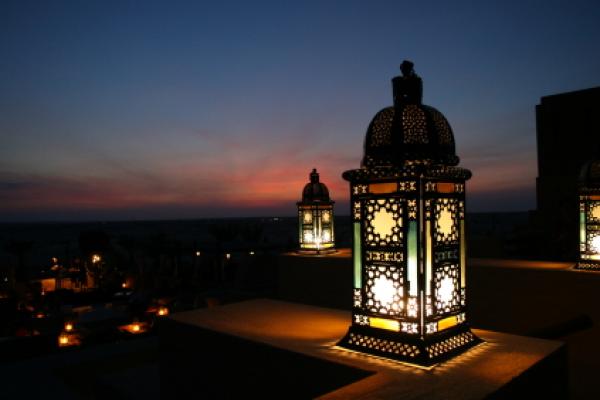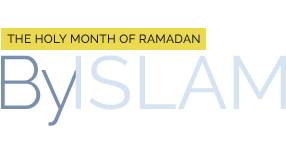What Is the Most Specific Fast?
 The highest level of fasting is to disengage oneself from other than Allāh (SwT). Every thought, speech, action, etc. is solely for Allāh (SwT). The fasting one in this level ensures that not only does he observe the first two levels of fasting, but protects his heart from other than Allāh (SwT). Perhaps this noble dictum of Imām al-Sādiq (‘a) refers to this very station:
The highest level of fasting is to disengage oneself from other than Allāh (SwT). Every thought, speech, action, etc. is solely for Allāh (SwT). The fasting one in this level ensures that not only does he observe the first two levels of fasting, but protects his heart from other than Allāh (SwT). Perhaps this noble dictum of Imām al-Sādiq (‘a) refers to this very station:
أَلْقَلْبُ حَرَمُ اللٌّهِ، فَلاََ تُسْكِنْ فِي حَرَمِ اللٌّهِ غَيْرَ اللٌّهِ.
“The heart is the sanctuary of Allāh; therefore do not make other than Allāh reside in the sanctuary of Allāh.”
The result of such a fast is ‘the Paradise of Divine Encounter’ (Jannat al-Liqā’). If we ponder over the supplications of the Holy month of Ramadān and try to understand what kind of reception and banquet we can anticipate, we would realize that it is this level of fasting that we must struggle to attain.
Imām Khumaynī in one of his sermons to the seminarians in Najaf al-Ashraf says:
“And enlighten the eyes of our hearts with the light of Your vision, until the vision of the hearts tears through the curtains of light and reaches the Source of Greatness (ma’din al-’azamah).’
The banquet of Allāh (SwT) is that very “source of greatness.” God, the Blessed and Exalted, has invited His servants to enter the source of light and greatness.”
He also says:
“The reward of such a fast is God, as He has stated: “The fast is for Me and I am its reward.” Nothing else could be the reward of such a fast. The Gardens of Blessings would not count as a worthy reward for such a fast. If a man takes fasting to mean closing his mouth to food but opening it for backbiting, and he engages in backbiting until sahar in the warm and friendly company in the nights when there is opportunity and time, such fasting will be of no benefit and have no effect…”
Elsewhere he also says:
“In this noble month, in which you have been invited to the divine banquet, if you do not gain insight (ma’rifah) about God the Almighty nor insight into yourself, it means that you have not properly participated in the feast of Allāh and failed to observe the etiquette of the feast…”
Therefore, our aspirations should be high, and we should struggle to attain the position which would enable us enter the Divine Feast. In the supplication of Abū Hamzah al-Thumāli, which Imām al-Sajjād (‘a) taught to his noble companion, we are taught to pray in the following way:
“…And I aspire to be a guest near You…”
Notice ‘to be a guest near Allāh’ is quite different from being just an ordinary guest. In the above verse we seek that kind of insight and knowledge that is obtained ladā Allāh – in the neighborhood of Allāh; In simpler terms, we are not just after any kind of knowledge, but that which is Divinely inspired, which is also known as al-‘ilm al-ladunnī and is, according to the Qur’ān, a product of piety; it is not a knowledge acquired from a human tutor.
It is, using the words of the Holy Prophet (s) ‘a light that Allāh infuses in the heart of whosoever He wishes to guide.’ This is the kind of knowledge, say some exegetes of the Qur’ān, that the following verse speaks about:
وَاتَّقُوا اللٌّهَ وَيُعَلِّمُكُمُ اللٌّهُ وَاللٌّهُ بِكُلِّ شَيْءٍ عَلِيمٌ
“Be God-wary and God shall teach you, and God has knowledge of all things.”
And the path towards achieving taqwā, as clearly specified in the Holy Qur’ān, is siyām (fasting). The Holy Qur’ān says:
يَا أَيُّهَا الَّذِينَ آمَنُوا كُتِبَ عَلَيْكُمُ الصِّيَامُ كَمَا كُتِبَ عَلَى الَّذِينَ مِنْ قَبْلِكُمْ لَعَلَّكُمْ تَـتَّقُونَ
“O you who have faith! Prescribed for you is fasting as it was prescribed for those who were before you, so that you may attain taqwā.”
Hence, ‘fasting’ is a factor that can refine the spirit of the human being so much that he can qualify to be taught directly by Allāh (SwT).
Some supplications teach us to ask Almighty Allāh to be hosted in ‘paradise’ in this month. In one of the supplications recommended during sahar time of the nights of the Holy month of Ramadān, we ask Almighty Allāh for Paradise:
وَقَدْ أَوْجَبْتَ لِكُلِّ ضَيْفٍ قِرىً، وَأَنَا ضَيْفُكَ، فَاجْعَلْ قِرَايَ اللَّيْلَةَ الْجَنَّةَ، يَا وَهَّابَ الْجَنَّةِ، يَا وَهَّابَ الْمَغْفِرَةِ، وَ لاَ حَوْلَ وَلاَ قُوَّةَ إِلاَّ بِكَ…
“…And very you have made obligatory for every guest to be entertained, and I am Your guest; therefore make my banquet tonight to be ‘Paradise’, O the Bestower of Paradise, O Bestower of forgiveness, and there is no strength nor any power save by You…”
It is possible that the reason why this supplication was followed by the two sublime names of Allāh – ‘Yā Wahhāb al-Jannah’ and ‘Yā Wahhāb al-maghfirah’ was to ask Allāh (SwT) for Paradise, and thus, necessarily also ask Him for relief from the Hell Fire, which enables one to enter Paradise. In other words, we are trying to seek the same ‘qirā’ (meal served to the guest) that we seek in holy precincts of Ka’bah during the seventh round of our circumambulation around the Ka’bah. We are taught to say:
أَللٌّهُمَّ الْـبَيْتُ بَيْـتُكَ، وَالْعَبْدُ عَبْدُكَ، وَهٌذَا مَقَامُ الْعَائِذِ بِكَ مِنَ النَّارِ، أَللٌّهُمَّ اِنِّي حَلَلْتُ بِفِنَائِكَ، فَاجْعَلْ قِرَايَ مَغْفِرَتَكَ…
“O Allāh, the house is Your house; and this servant is You servant; and this is where one who seeks Your Refuge from Hellfire stands; O Allāh, surely I have stopped at Your courtyard; therefore make my banquet to be Your forgiveness.”
In fact there is clear mention of seeking salvation from the Hell Fire in many supplications that we are taught to read in the Holy month of Ramadān. In the famous du‘ā that most of us recite after every prayer, we say:
يَا عَلِيُّ يَا عَظِيمُ يَا غَفُورُ يَا رَحِيمُ…مُنَّ عَليَّ بِفِكَاكِ رَقَبَتِي مِنَ النَّارِ…
“O Exalted One, O All-Great, O All Forgiving, O All-Merciful….bless me with freedom from the Hell Fire.”
And during the ā‘māl of laylat al-qadr we are taught to open the Holy Qur’ān and say:
…وَفِيهِ اسْمُكَ الأَكْبَرُ، وَأَسْمَآؤُكَ الْحُسْنَى، وَمَا يُخَافُ وَيُرْجَى، أَنْ تَجْعَلَنِي مِنْ عُتَقَائِكَ مِنَ النَّارِ…
“…and in it is Your Great Name and Your Most Beautiful Names and that which should be feared and hoped for, that you make me from those whom you have freed from Hell Fire…”
Another very important point to bear in mind is that since these supplications were from infallible masters, the Paradise sought is not that which the laity like the author aspire, but levels beyond.
The mystics have classified Paradise into different levels, the highest of which is Jannat al-liqā’ (Paradise of meeting the Lord). And this is what a true believer’s delight is in. The following prophetic tradition alludes to this verity:
لِلصَّائِمِ فَرْحَتَانِ؛ فَرْحَةٌ عِنْدَ إِفْطَارِهِ، وَ فَرْحَةٌ عِنْدَ لِقَاءِ رَبِّهِ.
“For the one fasting there are two joys: joy when breaking his fast, and joy when he meets His Lord.”
Source:
A Short Treatise on The Divine Invitation
written by Muhammad M. Khalfan



Leave a Reply
Want to join the discussion?Feel free to contribute!